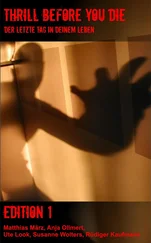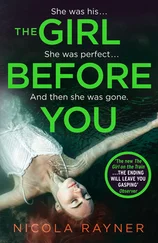“That would be too bad, wouldn’t it?” Charlotte said. “Maybe I’ll wait till the end of the summer. When we go home. I’ll bet this town doesn’t even have a place that does body art.”
“No,” Gary said from the top of the chair, the sound of his voice-and the reality that he was actually listening to their conversation-catching them both by surprise. “There isn’t a place in Franconia or Sugar Hill. But you could always try Yankee Art up in Littleton. The guy there also does tattoos.”
“Yeah, Charlotte, why don’t you get a tattoo? A belly-button ring and a tattoo. That’ll make your mom and dad real happy.”
“Of course,” Gary continued, “you’ll need to wait at least five or six years. I’m pretty sure it’s against the law to tattoo a seventh-grader.” He was smiling when he said it, and Willow wished she could see his eyes behind the mirrored lenses of his sunglasses.
“Eighth,” Charlotte said, almost spitting the syllable up at him. “I’ll be in eighth grade in September.”
The lifeguard just nodded, and Willow could tell he was struggling not to laugh. Then she saw him look up at something behind her, and when she turned she saw her mom and dad and Patrick-the baby in a Snugli on her father’s chest, his small pink hands the only visible flesh-wandering toward them across the grass between the main entrance and the clubhouse with its picture-window views of Mount Lafayette. They were early, she realized, because Grandmother had said they probably wouldn’t arrive until midafternoon. Then her mom was opening the gate in the chain-link fence that surrounded the pool, and-forgetting completely for the moment that her cousin Charlotte was annoyed by enthusiasm in any form-Willow was on her feet and running across the cement deck toward them because the truth was that she missed her parents, even if they hadn’t found the time to buy her a new bathing suit, and she was very glad they were here.
WILLOW BOUNCED her baby brother on her lap in a wrought-iron chair on the clubhouse deck by the dining room. His eyes reminded her of the pearly blue moonstones on the necklace Grandmother had given her for Christmas seven months ago, and his hair looked a bit like a baby chick’s. She had already finished her grilled cheese, but everyone else was still eating-except for Charlotte, who had never gotten to join them because Grandmother had refused to allow her to leave the pool area until she put on a T-shirt and shorts, and so the girl had been left to pout in the ladies’ cabana. Had been inside there at least half an hour now. It crossed Willow’s mind that it was possible Charlotte had snuck out and was actually watching the older teenagers sunbathe on the grassy hill just behind the tennis courts-she was probably sunbathing with those older kids, in fact-but she certainly wasn’t going to squeal on her cousin.
Her parents and her grandmother were talking about a funeral Grandmother was going to attend tomorrow for Walter Durnip. Willow knew Mr. Durnip largely as a heavyset man who seemed to walk in slow motion back and forth along the first hole of the golf course, but as far as Willow could tell he never played. He wore Bermuda shorts, and he had veins on his legs that looked like the topographic relief map in her classroom of the rivers in the Amazon rain forest. Her dad seemed a little sad that Mr. Durnip was dead. Apparently he had known the man his whole life, and the man’s daughter had babysat him when he was a little boy.
“Maybe I’ll join you, Mother,” her father said, referring to the funeral. Both he and her mother were eating tomatoes filled with salmon, and Willow found herself wishing the sheer rosiness of the fish had been hidden better by the mayonnaise and the dill. What was it Charlotte was always saying? It’s not meat, it’s flesh.
“Oh, don’t even think of coming,” Grandmother began, shaking her head at her son and groaning. “You’re on a weekend vacation. And I just know the funeral is going to be long, and there will be people there who will feel they have the right to talk.”
“It’s called a eulogy, Mother. Some people actually like to mourn.”
“I don’t mean the minister. I mean regular people. These days, it seems, anyone who happens to be in the church for a funeral is invited to speak. I was at a funeral last summer-that nice Mrs. Knebel-and easily a dozen people thought they had something worth sharing.”
“I gather you thought they were mistaken.”
“That church has very poor ventilation. And they had too many hymns. When I die, I want my funeral to last no more than fifteen minutes, and absolutely no one is allowed to speak but you or your sister, and the minister-whoever it is then. And no hymns. Are we clear?”
Her father took a long swallow of his iced tea and said, “We’re clear, Mother. Show tunes, yes; hymns, no.”
“I’m serious. I want a nice, short funeral-especially if there’s sunshine. People should be outdoors.”
Patrick burped and then smiled. His eyes were unblinking.
“If you die in the summer, we’ll be sure to have the funeral here in New Hampshire and we’ll be sure to have it outside,” her mother said. “We could have it beside the new cutting garden.” The cutting garden was a living room-sized block of perennials they had planted between the spindly apple trees and the garage. It actually had been among the easier tasks they had tackled over Memorial Day Weekend, because most of the flowers-the bridal veil astilbe, the red English daisies, the moss pink, the Canada and the Carolina phlox-were in shin-tall buckets and merely needed to be transplanted into the soil that had been tilled before they arrived.
“If you’d like-and you’ll need to let us know ahead of time, Nan-we could even rent a little arch made with lattice from one of those rent-anything places,” her mother continued, teasing. Sara was wearing sunglasses and holding her hair back in a tie-dyed scarf Willow had made for her at a summer day camp when she’d been seven. She looked a little bit like that First Lady from the early 1960s Willow had seen photographs of-the one who always seemed to be wearing sunglasses and scarves-except that her mother’s hair wasn’t quite as dark and her mother as a whole wasn’t quite as glamorous.
Actually, Willow didn’t think her mother was glamorous at all. But she was pretty and she was interesting: The girl did not know the details, but she had the sense from the occasional remarks her parents and her Vermont grandparents had made and from pictures she had seen in old photo albums that her mother had been rather wild as a teenager and when she’d been in college. She knew that her mother had once traveled to Cape Cod with a boyfriend on the back of his motorcycle, and that with two of her girlfriends she’d once taken her own father’s car and disappeared for a night in Montreal. She had a thin tattoo of what looked to Willow like ivy wrapped around her left ankle, and a rose the size of a tablespoon in the crevice at the very small of her back-a spot no one ever saw these days but Willow, baby Patrick, and John.
“Oh, I have some bad news about the garden. The vegetable garden,” her grandmother was saying.
“Yes?” Her father used what Willow recognized as his lawyer’s tone when he said the word, drawing the single syllable out a long time and keeping his voice perfectly even.
“Deer. It was attacked by deer last night.”
“Attacked by deer,” her mother said, emphasizing attacked. Willow knew that her mother disapproved of language with needlessly violent imagery. “You make it sound like it was shelled.”
“They might as well have shelled it. The peas and string beans and beet greens were eaten, and the corn-”
“We can’t possibly have corn yet,” her father said.
Читать дальше











